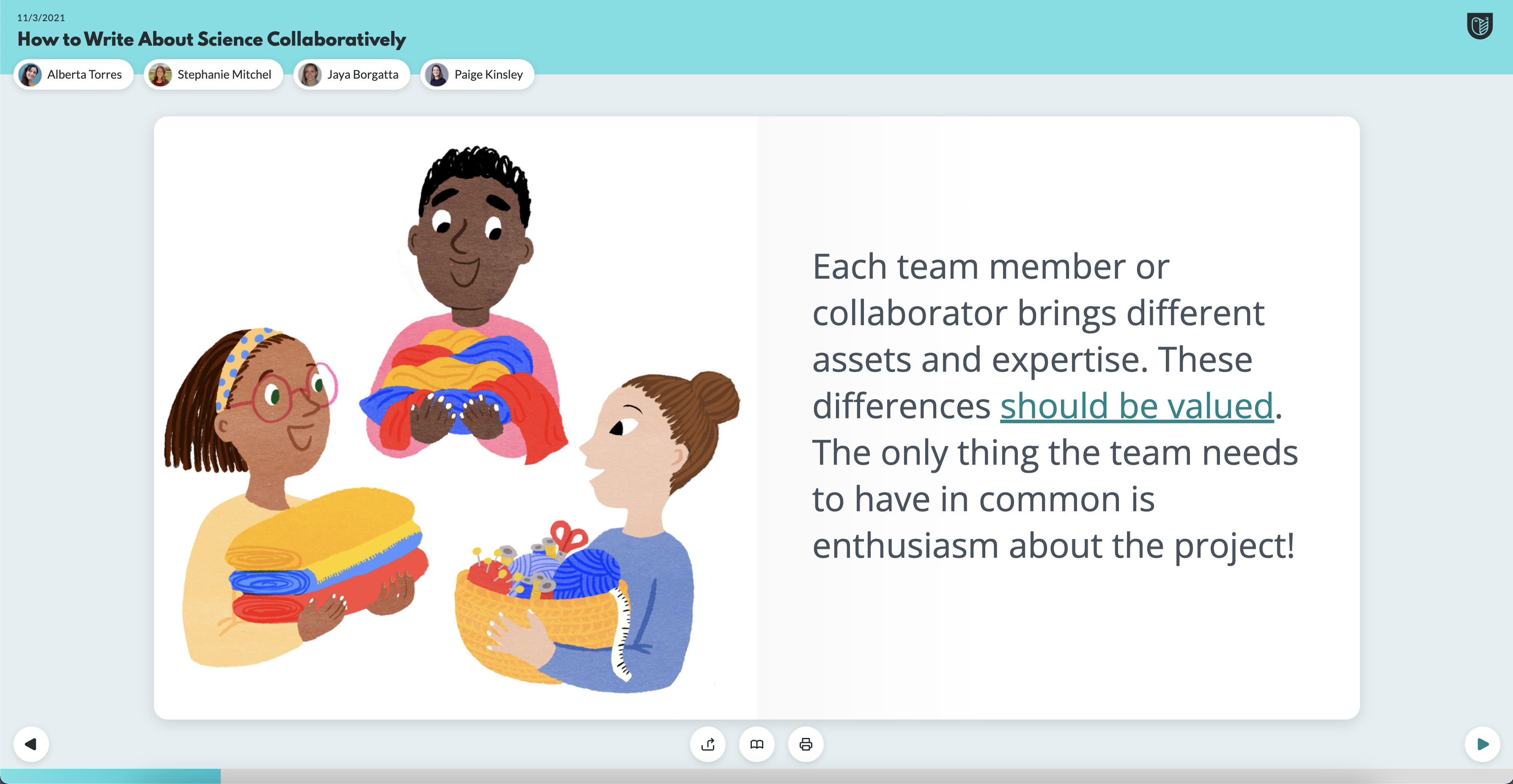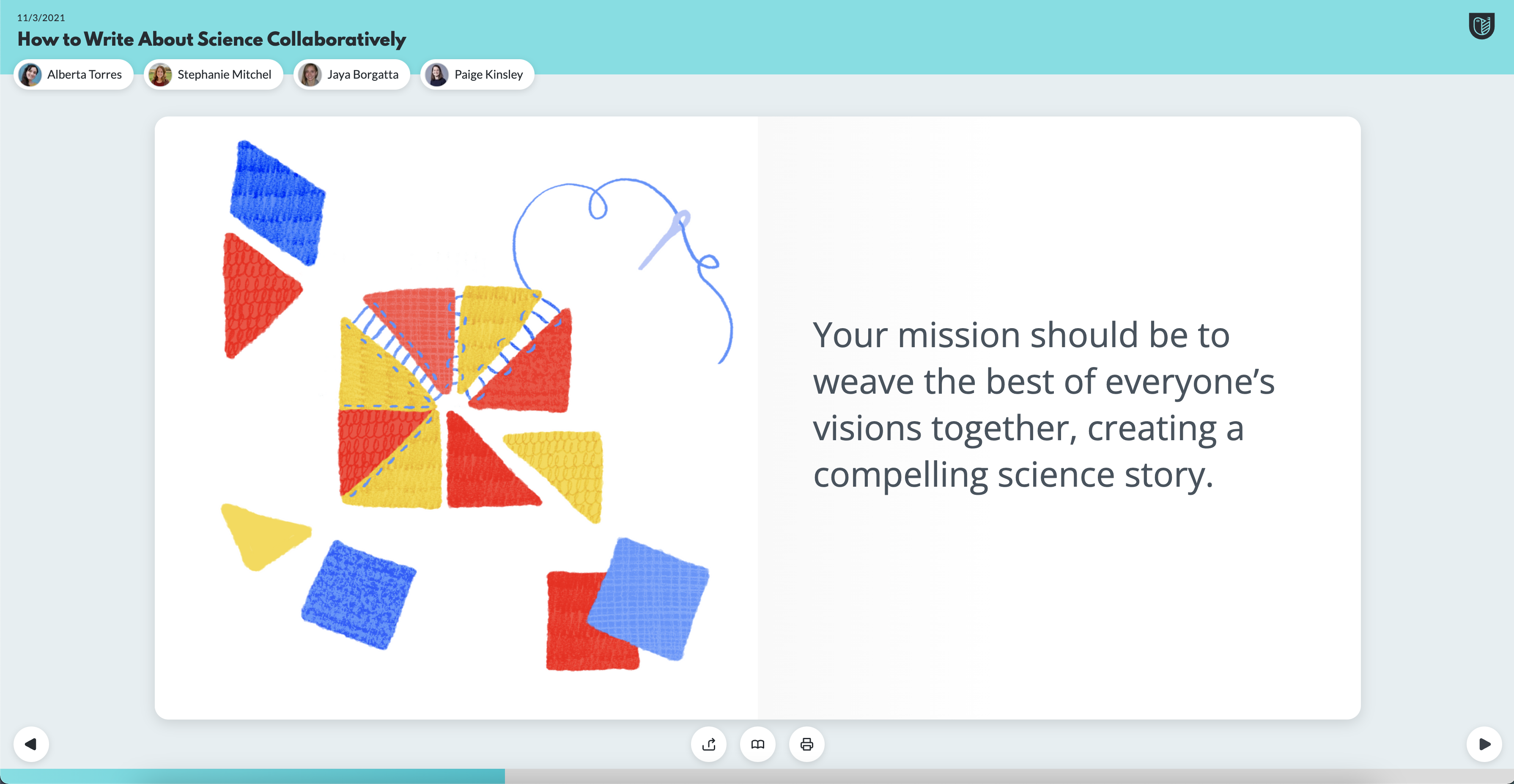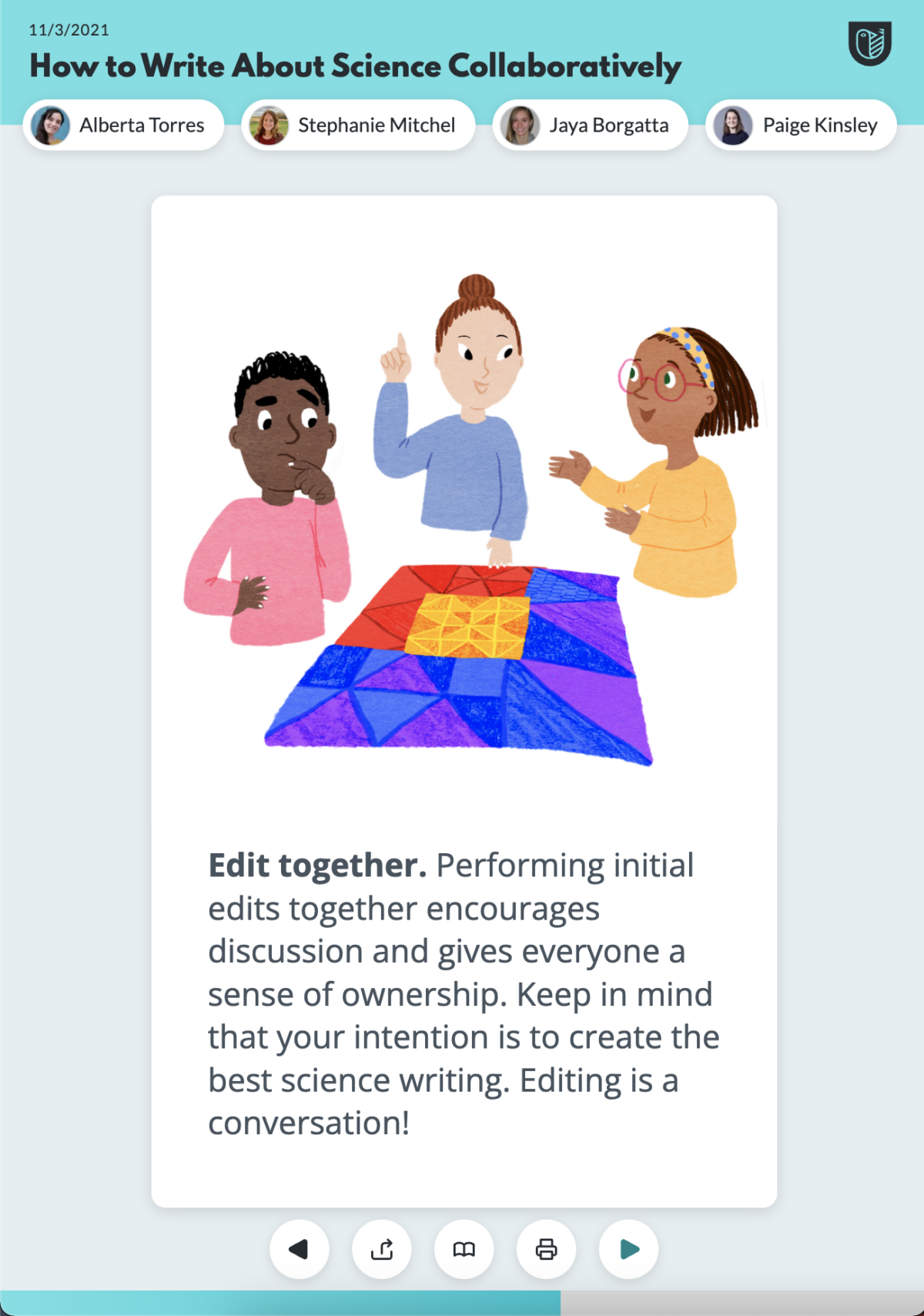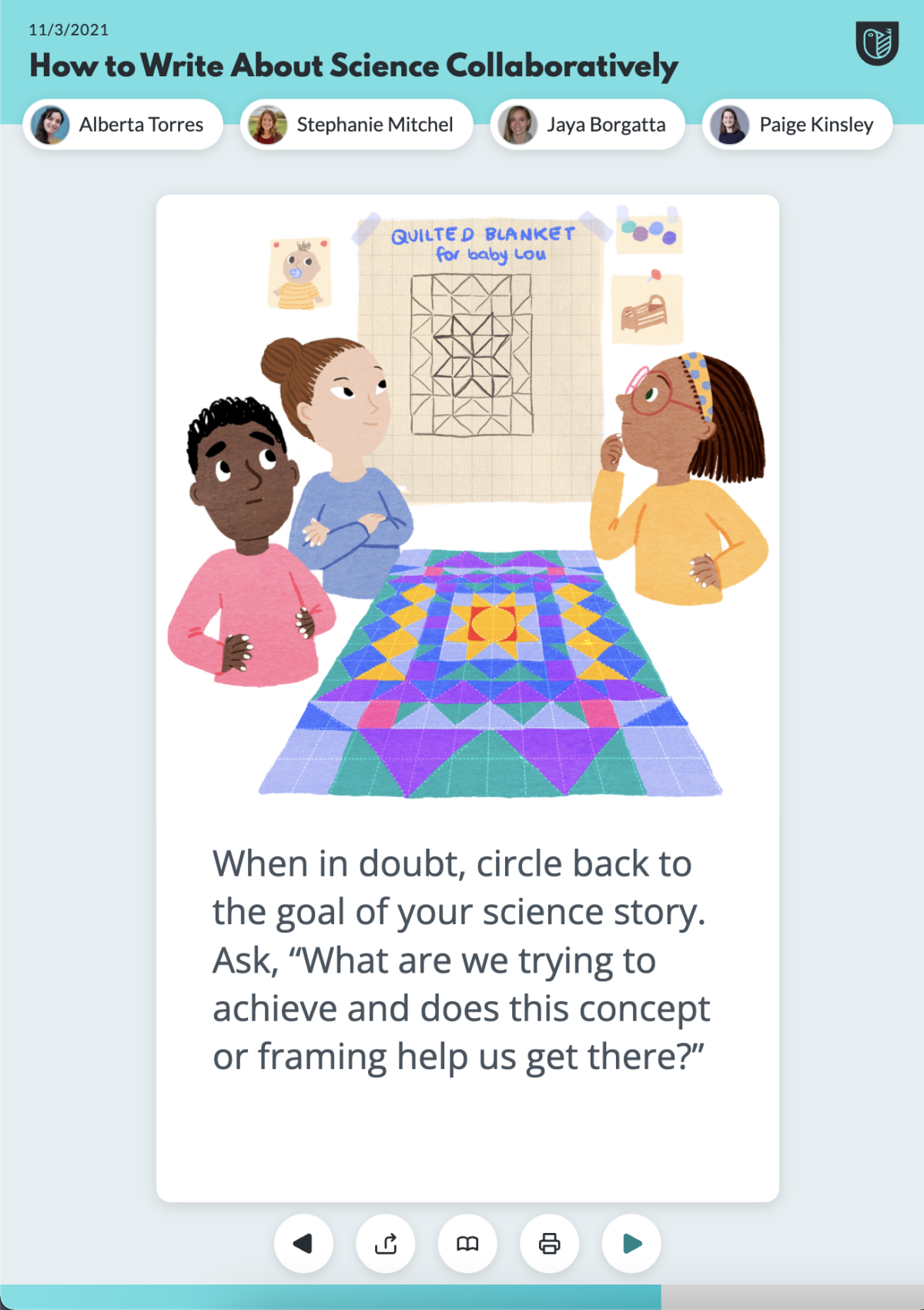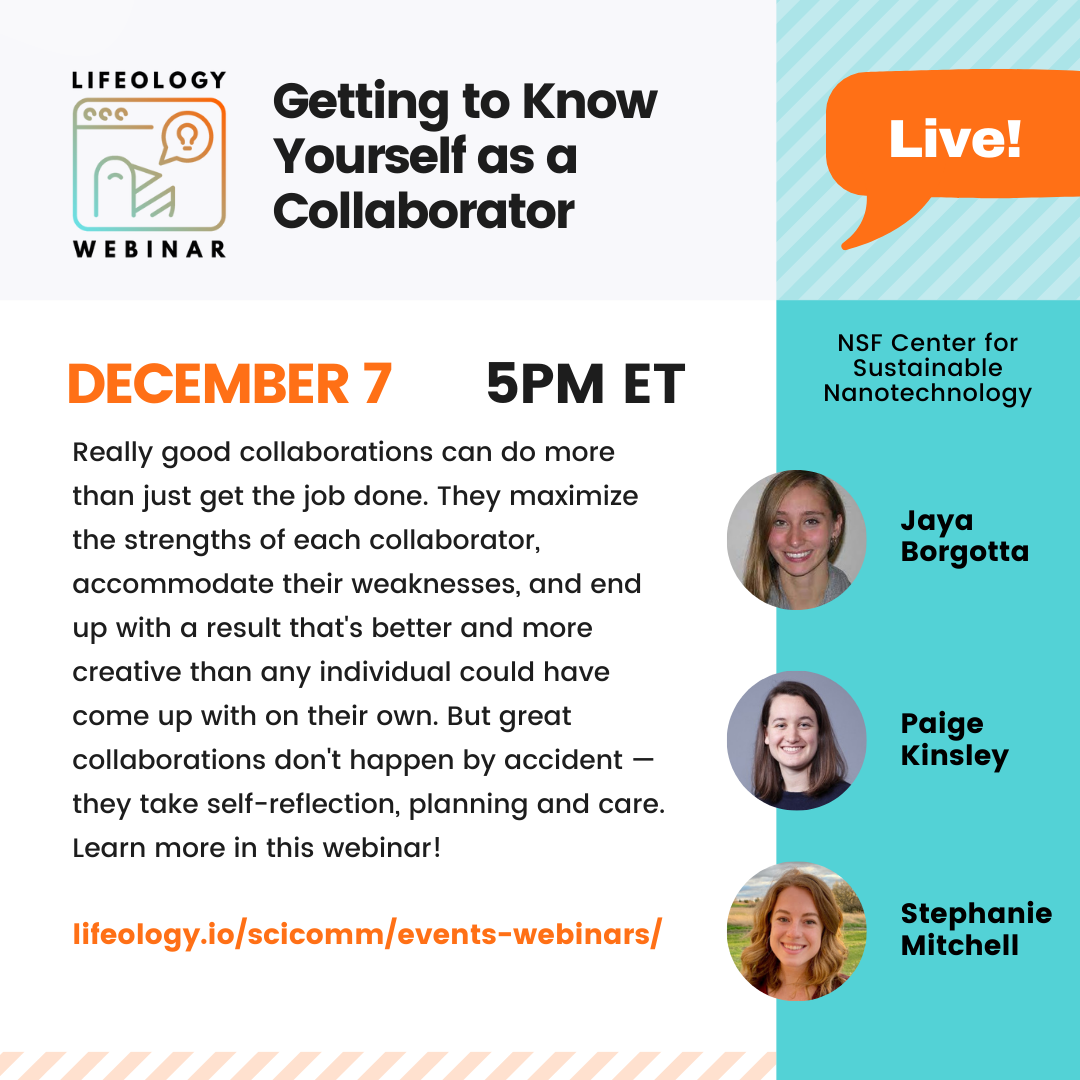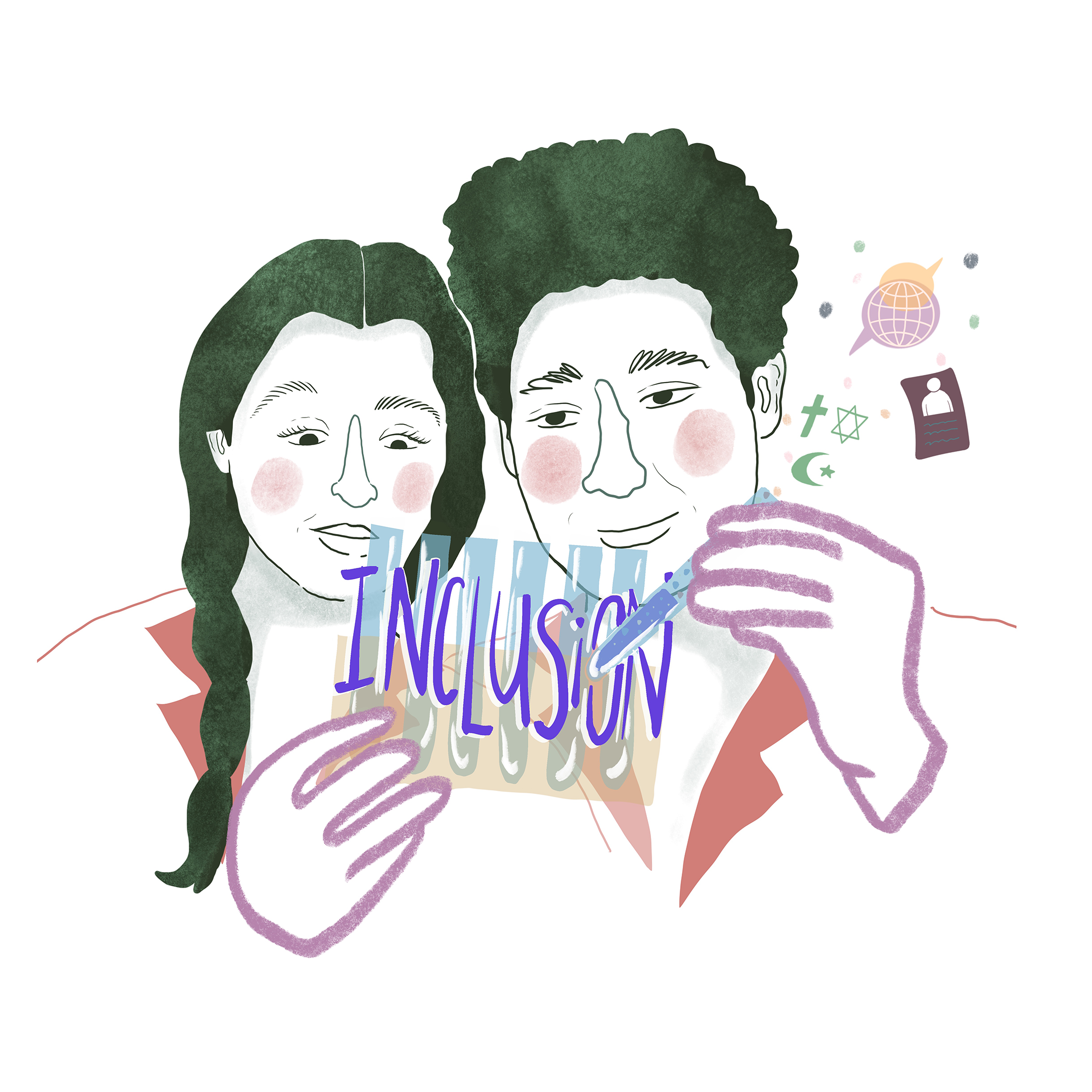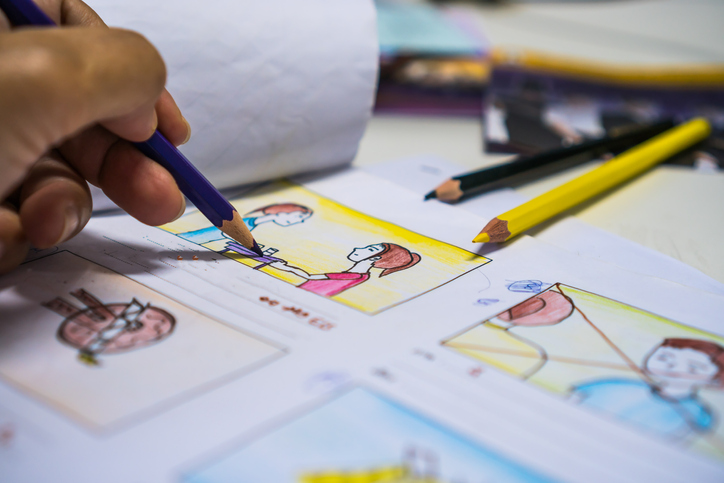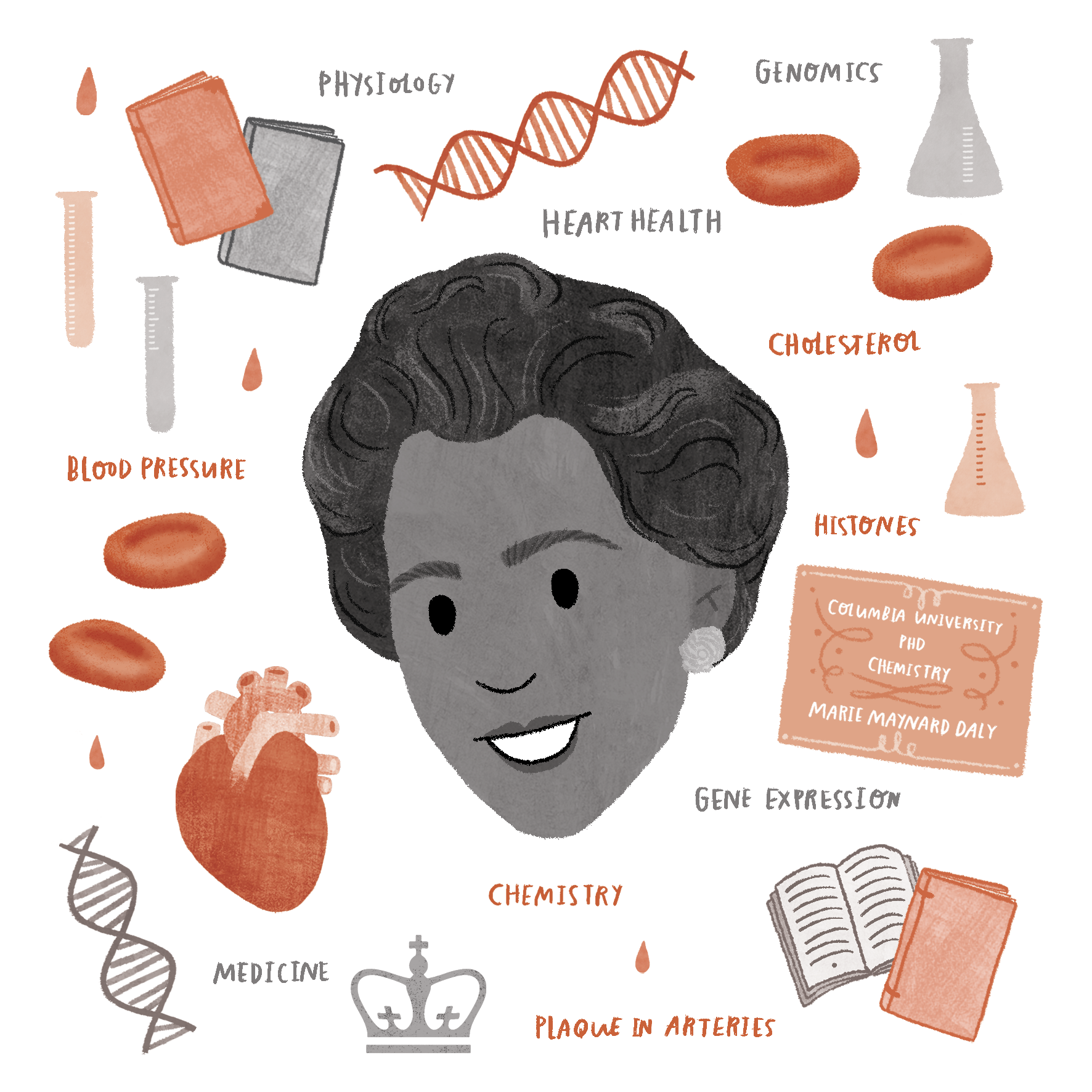The Lifeology SciComm Program has a new flashcard course to help scientists and other experts learn best practices for writing about science collaboratively! Learn how to tell a science story and thrive as a team with Jaya Borgatta, Paige Kinsley and Stephanie Mitchell, a group of chemistry graduate students who have written two (now three!) Lifeology courses together.
Screenshot from the “How to Write About Science Collaboratively” course. It reads, “Each team member or collaborator brings different assets and expertise. These differences should be valued. The only thing the team needs to have in common is enthusiasm about the project!”
We collaborated with Jaya, Paige Kinsley and Stephanie—and The NSF Center for Sustainable Nanotechnology—to create two Lifeology courses about how nanotechnology can be applied responsibly to solve real-world problems like growing more plant food and how we can all be better stewards of the nanoparticles that exist in the devices that power our lives. We designed the collaboration to give students professional development opportunities in science writing, storytelling, project management and collaboration with artists. Learn more about the collaboration here.
Our newest course, “How to Write About Science Collaboratively“, brings you many of the lessons learned by Jaya, Paige K and Stephanie during the course creation process. This course, illustrated by Alberta Torres, likens writing collaboratively to the process of making a quilt—which we certainly love and hope you do, too! Check out the insightful course accompanied by beautiful illustrations now.
Screenshot of a card from the “How to Write About Science Collaboratively” course. It reads, “Your mission should be to weave the best of everyone’s visions together, creating a compelling science story.”
In the course, you’ll learn about the importance of a team culture—everyone brings something great and unique to the table. It’s helpful to know the strengths and weaknesses of each team member so that everyone can effectively contribute and take on the most productive roles. What kind of roles are involved in writing collaboratively? Can you divide and conquer? If so, how? Find out this and more in the course!
Screenshot of a card from the “How to Write About Science Collaboratively” course. It reads, “Edit together. Performing initial edits together encourages discussion and gives everyone a sense of ownership. Keep in mind that your intention is to create the best science writing. Editing is a conversation!”
Envisioning the final project together is an important step in the process. Everyone’s vision will probably look different—and that’s okay because differences are good! During the creation process, revisiting the goals originally set forth by the team members can help the team choose the right pieces to include or settle disagreements.
Another theme of the course is “Yes, And…” statements. Learn about using these statements to ensure that you listen to others and keep the energy positive—all while still contributing your ideas!
Finally, it’s important to seek outside feedback. And don’t forget to credit everyone who contributed! You’ll have to view the course to learn all the lessons learned and advice for writing about science collaboratively. Check it out now…you have to see how the quilt turns out!
And if you want to learn even more about writing science collaboratively, you’re in luck! On December 7th at 5pm ET, we have a Lifeology live webinar! The webinar, “Getting to Know Yourself as a Collaborator,” is also presented by Jaya, Paige, and Stephanie.
Why is collaboration important and valuable? What can be challenging in a collaboration? Learn more about the process and ask questions about any of the courses created by these brilliant grad students. You can register now.
Want to check out more SciComm courses? Head on over to this page now to view the 14 and counting other SciComm courses we offer.
